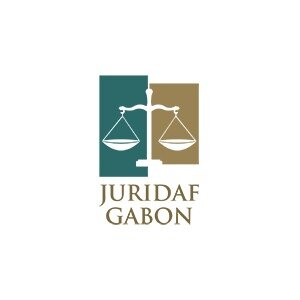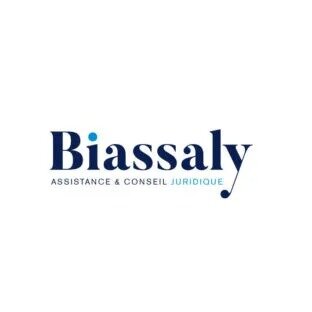Best Debt & Collection Lawyers in Libreville
Share your needs with us, get contacted by law firms.
Free. Takes 2 min.
List of the best lawyers in Libreville, Gabon
About Debt & Collection Law in Libreville, Gabon
Debt and collection law in Libreville, Gabon, is a key component of the legal system, addressing the rights and responsibilities of both creditors and debtors. In Gabon, as in many other jurisdictions, the law provides mechanisms for creditors to recover debts owed to them while also protecting debtors from abusive collection practices. The legal framework ensures fair treatment, balancing the need for efficient debt recovery with the protection of debtors' rights. With Libreville being a major economic hub, issues related to debt and collection are common, necessitating a robust understanding of the relevant laws to navigate potential disputes effectively.
Why You May Need a Lawyer
Seeking legal advice in the realm of debt and collection can be crucial for several reasons. If you are a creditor seeking to recover a debt, a lawyer can assist you in navigating the legal processes to ensure timely and effective recovery. Conversely, if you are a debtor facing aggressive collection practices or a lawsuit, legal assistance can help protect your rights and negotiate more favorable terms. Common situations warranting legal help include being sued for a debt, experiencing harassment by debt collectors, or needing to understand the implications of bankruptcy and restructuring in Gabon.
Local Laws Overview
The legal landscape for debt and collection in Libreville, Gabon, encompasses various regulations that dictate how debts should be managed and collected. Key aspects include the stipulation of fair debt collection practices, ensuring creditors do not engage in deceptive, unfair, or abusive behavior. The laws also cover the procedures for filing lawsuits for debt recovery, the enforcement of judgments, and the rights of debtors, such as protecting essential assets from seizure. Understanding these laws is vital for both debtors and creditors to ensure compliance and effective resolution of disputes.
Frequently Asked Questions
What should I do if I receive a debt collection notice?
If you receive a debt collection notice, it is important to review it carefully to ensure its accuracy. Contact the creditor or collection agency for verification and consider seeking legal advice if you feel the debt is incorrect or you are being treated unfairly.
Can a debt collector contact me at any time?
No, debt collectors must adhere to specific regulations governing the times they can contact you. Generally, they should not contact you at unusual hours or repeatedly in a manner considered harassing.
Is my property at risk if I cannot pay a debt?
While creditors can seek legal judgment to recover debts, there are certain protections for debtors. Essential personal property may be exempt from seizure. It's advisable to understand what is protected under local law and seek legal guidance for your specific situation.
Can I negotiate a debt repayment plan myself?
Yes, you can negotiate a repayment plan with your creditor. However, having legal guidance can aid in structuring a more favorable agreement while ensuring your rights are protected.
What is the process for recovering a debt through the courts?
The process involves filing a legal claim in court, after which a judgment may be obtained to enforce debt recovery. The court may authorize various measures for debt collection, including garnishments or liens.
How should I respond to a lawsuit for a debt?
If sued for a debt, it is critical to respond promptly, usually by filing a response with the court. Failing to respond can lead to a default judgment against you. Consider hiring a lawyer to assist with your defense.
What are unfair debt collection practices?
Unfair practices include any actions by debt collectors intended to deceive, coerce, or harass you into paying a debt. This may include misrepresentation, excessive phone calls, or threats of violence.
What records should I keep if I have a debt?
Maintain copies of all communications with creditors, payment receipts, the original credit agreement, and any court documents if the matter escalates to legal proceedings.
Can I dispute a debt that I believe is not mine?
Yes, if you believe a debt is not yours, you should dispute it in writing with the creditor or collection agency, providing any necessary documentation to support your claim.
What should I do if a debt collector is behaving abusively?
If a debt collector is abusive, document all interactions and consider reporting them to the relevant authorities. Seek legal advice to protect your rights and possibly pursue a complaint against the collector.
Additional Resources
For more guidance on debt and collection issues in Libreville, consider consulting with the following resources:
- Ministry of Justice, Gabon - For information on legal proceedings and advice.
- Local Bar Association - For advice on finding qualified legal assistance.
- Consumer Protection Agencies - For assistance regarding unfair debt collection practices.
- Financial Ombudsman - For resolving complaints against financial institutions.
- Legal Aid Services - For those who may require assistance but cannot afford a lawyer.
Next Steps
If you are dealing with debt and collection issues, the first step is to understand your rights and legal position. Collect all relevant documentation and seek legal advice to evaluate your options. Contact a local lawyer with experience in debt and collection law to discuss your case. If cost is a concern, inquire about legal aid services or pro bono options. Preparing in advance can help you effectively manage your situation and protect your interests.
Lawzana helps you find the best lawyers and law firms in Libreville through a curated and pre-screened list of qualified legal professionals. Our platform offers rankings and detailed profiles of attorneys and law firms, allowing you to compare based on practice areas, including Debt & Collection, experience, and client feedback.
Each profile includes a description of the firm's areas of practice, client reviews, team members and partners, year of establishment, spoken languages, office locations, contact information, social media presence, and any published articles or resources. Most firms on our platform speak English and are experienced in both local and international legal matters.
Get a quote from top-rated law firms in Libreville, Gabon — quickly, securely, and without unnecessary hassle.
Disclaimer:
The information provided on this page is for general informational purposes only and does not constitute legal advice. While we strive to ensure the accuracy and relevance of the content, legal information may change over time, and interpretations of the law can vary. You should always consult with a qualified legal professional for advice specific to your situation.
We disclaim all liability for actions taken or not taken based on the content of this page. If you believe any information is incorrect or outdated, please contact us, and we will review and update it where appropriate.









